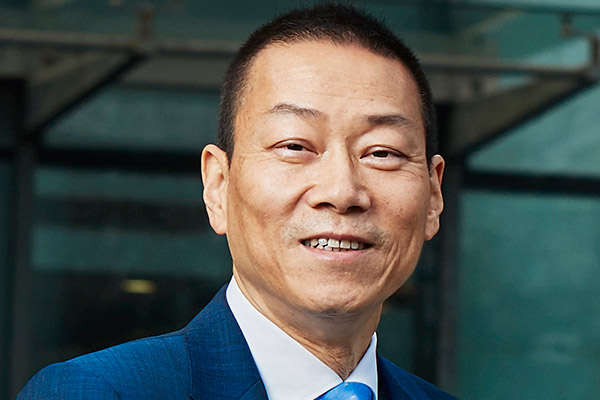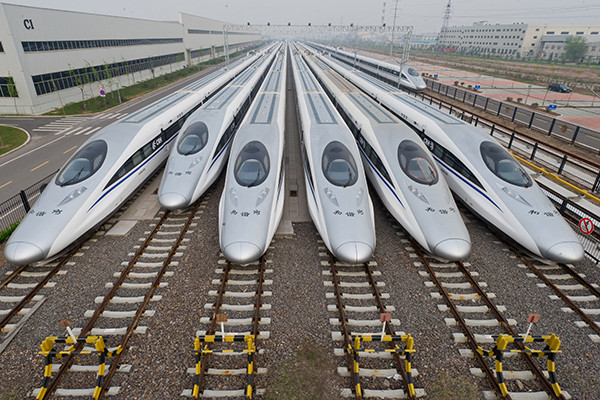Connecting dots on health map
 |
|
Andy Ho, CEO of Philips Greater China. [Photo provided to China Daily] |
Andy Ho is integrating Philips' hardware, software and services, and looking for the right local partners in China
For Andy Ho, 55, the fitness-loving CEO of Philips Greater China, the local unit of the Dutch multinational, the treadmill is not just an exercise machine but a metaphor for methodical transformation, be it at a personal or corporate level.
He walks/jogs on the treadmill at a minimum incline of 10 percent or higher and at a moderate speed of 5 km per hour, to ensure the heartbeat rhythm is just right. "It is a more consistent way of working out."
Call it the Treadmill Approach, if you will-that is how the consumer electronics behemoth transformed itself into a high-tech healthcare giant. And that is how Ho would like to manage Philips in China as well-"by being persistent and straightforward, just like the treadmill exercise".
At first look, Philips' jump to healthcare from consumer electronics may appear radical. Ho, who took the China unit's helm in 2015 during that transition, however, doesn't see it that way.
"Consumer electronics constitutes a crucial part of the business. People start to realize that maintaining good health is all about everyday lifestyle," Ho said.
In other words, the common factor that Philips saw in consumer electronics and high-tech healthcare systems is their relevance to everyday lifestyle.
But then, for a multitude of consumers, the 125-year-old company is synonymous with music systems, lightbulbs and the like. So, Ho travels the extra mile to persuade people to consider Philips as a provider of healthcare products and services.
That's crucial to his role because a substantial chunk of China's population is aging. They look to technology for affordable healthcare. Ho's goal is to deliver just that by integrating hardware, software and services.
Attaining that goal isn't going to be easy as other giants such as International Business Machines Corp, Siemens AG and GE are vying for a slice of China's high-tech healthcare systems market.
Incidentally, Ho had served in a variety of roles, including as a senior executive with global functions, over the past 30 years at IBM, before joining Philips.
He is keen to redefine Philips' core businesses through an integrated approach, where personal health, definitive diagnosis, guided therapy, connected care and informatics, and consulting services are inseparable components along the health continuum.
Ho knows how to leverage resources. The company's wide-ranging product history and the reputation it gained from coffee makers to electronic devices to MRI machines could help it to grab more of the connected market for homes and hospitals.
For example, Philips introduced an intelligent toothbrush where sensors are connected to a mobile app. Users may receive personalized step-by-step coaching and real-time feedback and post-brush analysis with a visual 3-D mouth map to help improve the brushing technique.
The app allows sharing of data on dental practices, so that hygienists can mark up areas that need special attention.
According to Ho, the gadget represents more than a product but a pioneering business model, as Philips makes strides in business-to-business and business-to-customer areas.
Products like the intelligent toothbrush could penetrate the market through high-end dentists across China, where consumers respond to bundling of cutting-edge technologies with professional services.
Such moves are set to rival GE Healthcare and Siemens for a bigger share of the lucrative healthcare solutions market.
Software currently accounts for about 3 billion euros ($3.1 billion) of the 17 billion euros in sales generated by Philips, according to Bloomberg data.
Portfolio revamps began to reap fruit. China now accounts for 11.5 percent of Philips' sales globally, with the number expected to surge, according to its third-quarter report for 2016 in October. Order intake showed double-digit growth in emerging markets, mainly driven by China.
Driving a customer-centric approach requires on-the-ground research in the local market. From air purifiers to apps that track diet habits, Ho and his team delve into unique customer preferences in China, where the digital savvy middle class are willing to pay more yuan for wellbeing.
China's healthcare sector continues to develop at an astonishing rate: spending is projected to grow from $357 billion in 2011 to $1 trillion in 2020, according to McKinsey's estimates.
To this end, Ho's philosophy is not to be an emperor living in the palace but to drive businesses based on market dynamics.
"I travel frequently to Shenzhen and reach out to our customers and sales teams, where I gain a more in-depth understanding of different market fragments. The two most important things in the health system arena is to promote the best modality technologies and at the same time, drive integrated solutions for our customers," he said.
Ho's winning recipe also includes finding the right local partners. Calling it "strategic priority", Ho and his team seek alliances among government agencies, technology incubators, and universities.























